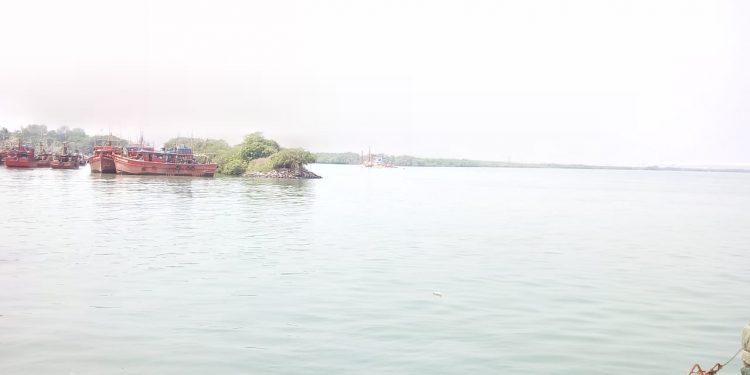Paradip: After the two-month long fishing ban was lifted June 14, fishing activities have suddenly picked up in the sea here. At the same time, clandestine oil and SIM card businesses in the waters have also gone up.
“The increased fishing activities and illegal fuel business in the sea are correlated,” said a few fishermen on conditions of anonymity.
It is a common phenomenon to see hundreds of boats and trawlers sailing into the sea since the very day of fishing ban being lifted. Paradip fishing harbour offers the same picture this time too. While hundreds of trawlers and boats go into the sea to catch fish, a number of them run short of fuel while in the sea. This eventuality has given rise to the unscrupulous oil businessmen who provide fuel to the vessels in trouble.
They sell their fuel by Rs 10 to 12 less a litre than the market price. At times, many trawler owners keep waiting in waters for these traders to arrive and deliver them the fuel. Four boats are presently active in this illegal business, said a source.
That said, the cheap price made it clear that the fuel traders were obviously not procuring their oil from the market. When our correspondent tried to solve the puzzle of the source of the smuggled fuel, the revelation was rather surprising.
These illegal oil businessmen by and large manage to procure the oil in the sea itself. Staff of cargo ships, tugboats engaged in the port, private boats shuttling between the port and single point mooring system (SPM) and other boats engaged in cargo handling generally sell oil secretly to these traders to rake in extra bucks.
The traders purchase the oil from these vessels almost at half the market price and then sell it to the fishing trawlers and boats with a fat margin. Nothing goes on record and obviously nobody pays any tax. Worse, these smugglers at times steal directly from the oil pipeline connected to the port by secretly snapping the line.
They had not been able to sell their oil owing to the ban since last two months. However, the time has come for them to monetise their entire inventory that they have built over the months.
Fuel apart, these traders are also involved in mobile SIM card and scrap businesses.
Our investigation shows that the cargo ships often have to wait at anchorage area minimum for two days before they enter the port. The duration sometimes goes up to 10 days. This is the time when the sailors of these anchored ships require Indian mobile SIM cards to talk to their relatives and for internet. They get their SIM cards from these oil businessmen easily in exchange of oil and narcotic products.
“The oil and narcotic products we get from the sailors of anchored ships give us more profit,” divulged one of the oil traders wishing not to be named.
Surprisingly enough, even though there are a host of agencies guarding the sea such as the marine police, coastguard, Indian Navy and CISF among others, their presence has barely made a dent in the trade. Even though selling mobile SIM cards without valid documents poses a threat to the nation’s security, there appears to be nothing that can stop these smugglers.






































